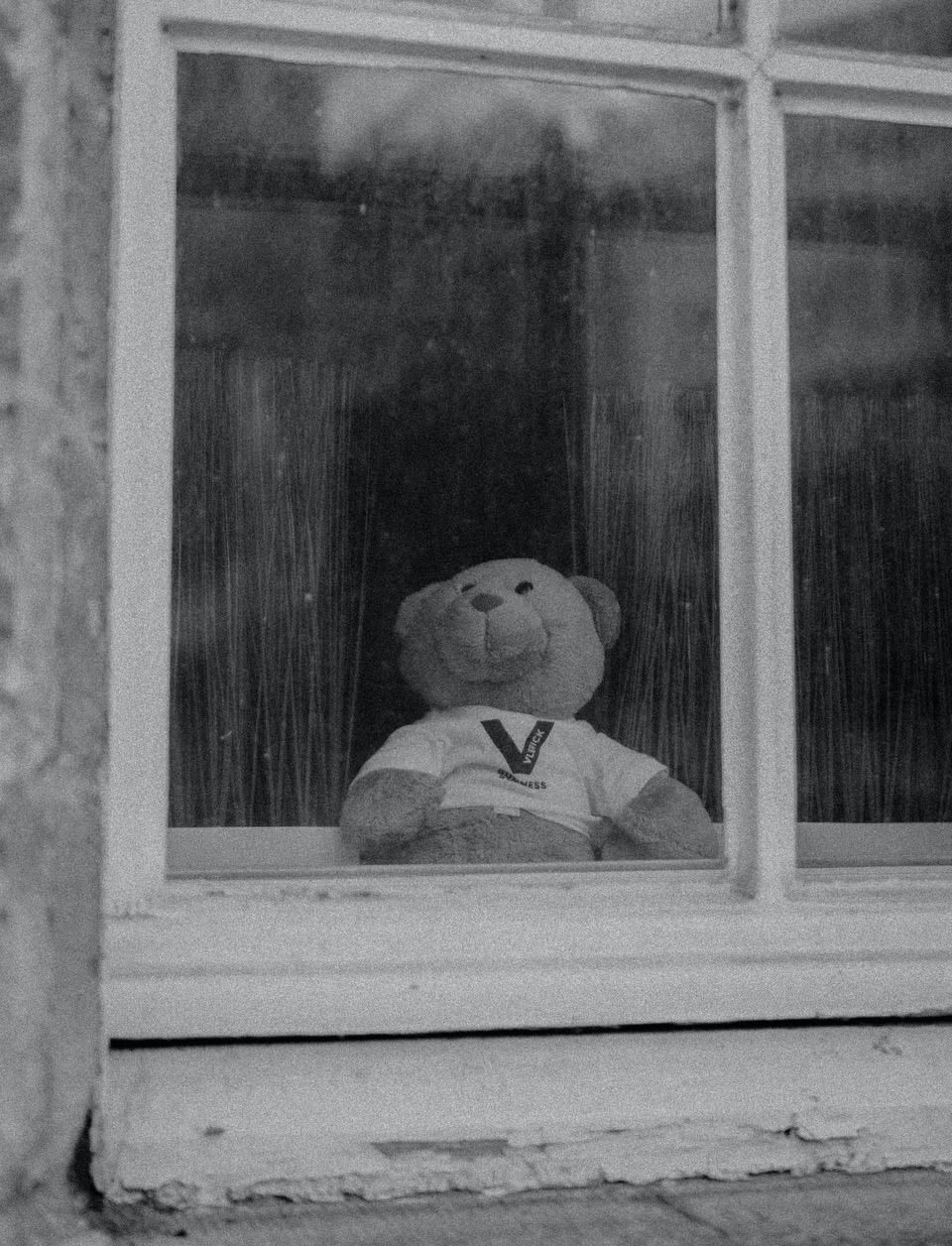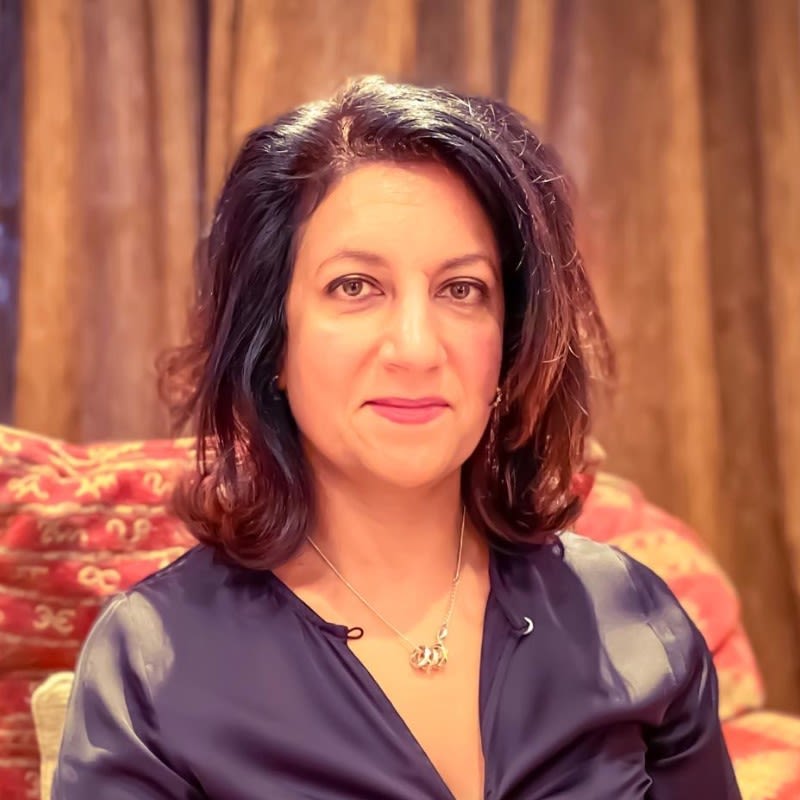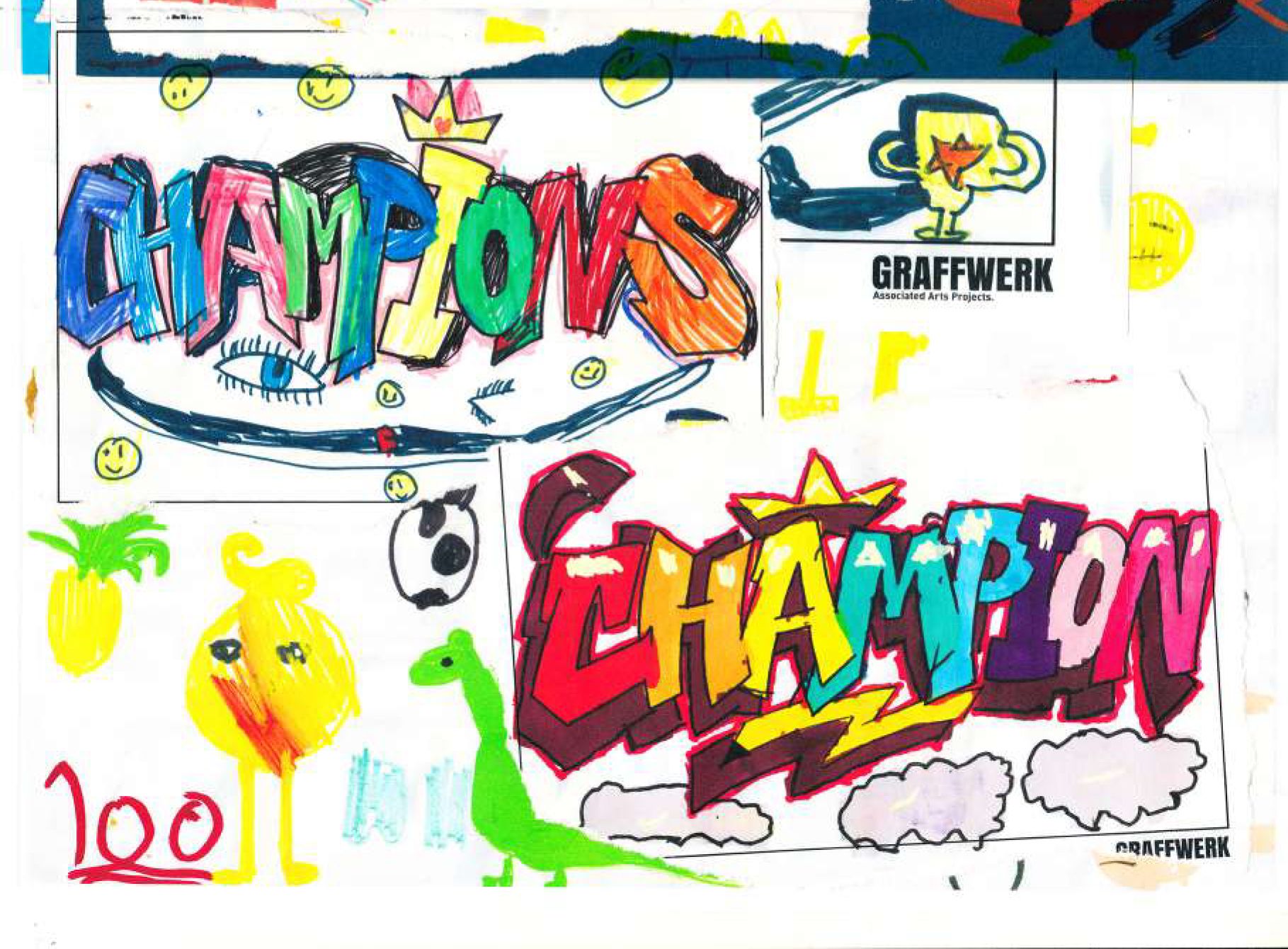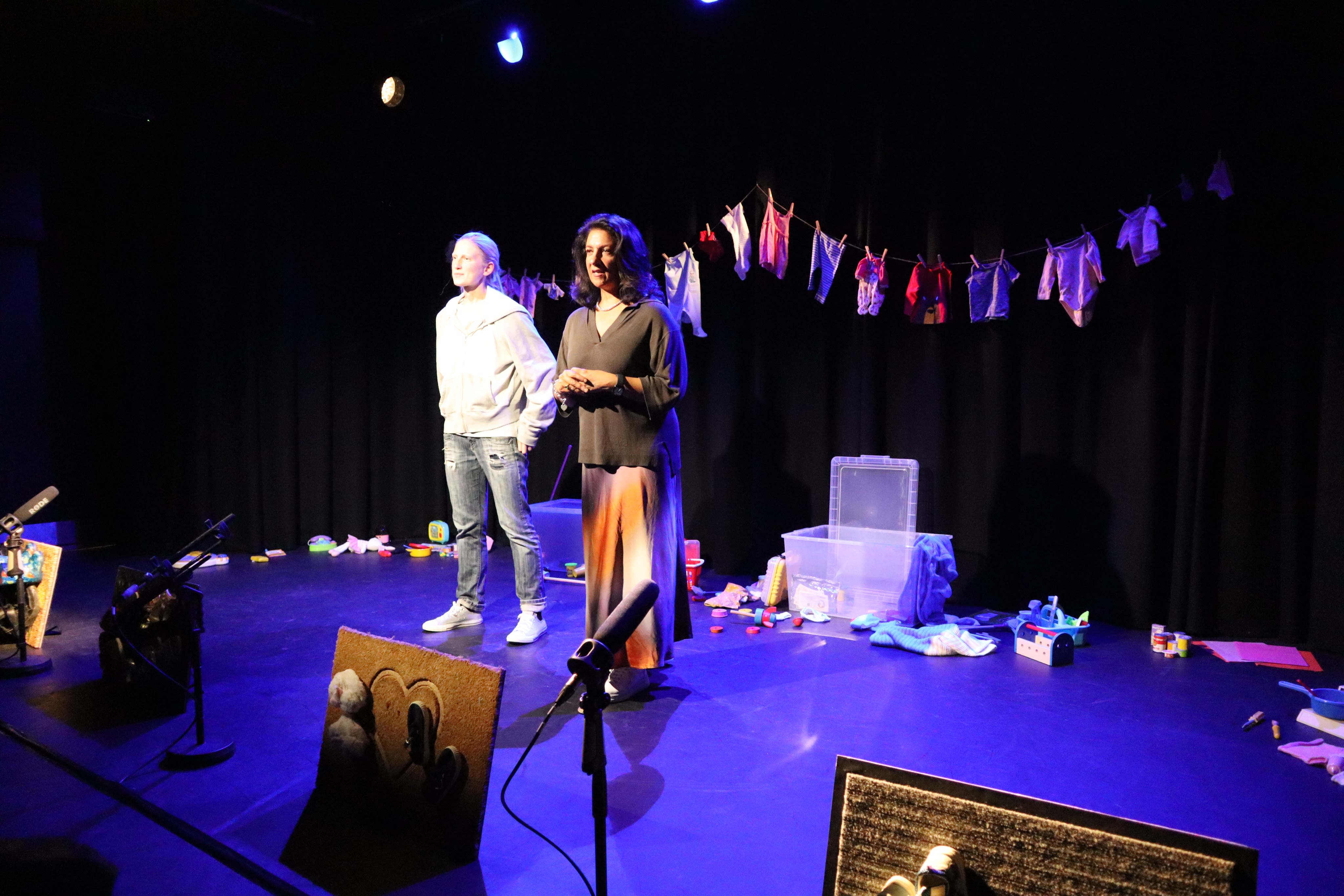Insider: Monica Lakhanpaul
Championing homeless children
How do we reach and support children in temporary accommodations? Professor Monica Lakhanpaul explains how she’s using the theatre and creative arts to listen and give a voice to unheard children


Professor Monica Lakhanpaul
Professor Monica Lakhanpaul
I wear three different hats – or maybe even more! I’m a practising consultant paediatrician, a Professor of Integrated Community Child Health, and the Global Strategic Academic Advisor for strengthening partnerships between UCL and India.
This means I have a portfolio of work focusing on the most underserved, unheard children in society – both in the UK and globally. I’m interested in co-creating interventions to improve the outcomes of children using participatory methods such as theatre and creative arts. The ultimate aim is to advocate for children and translate research findings into practice, policy changes and ultimately action.
There are different ways I approach my research. One is through the medical model of what a child's illness might be. In particular I look at epilepsy, asthma and nutrition. But I also use an integrated community child health approach to understand the social determinants of health. What is in a child's environment? What are the social challenges where they live?
Integrated means bringing together the different service providers in a child's life to think about children and families in a holistic way. We need to break out of silos so that we have a complete understanding of the child's pathway from living at home, being at school, right the way through to when, unfortunately, some do need to go to hospital. It means working with different disciplines, which for me includes academics in education, engineering, health and policy.
I work across the life course, but with a particular focus on early years and adolescence – those are critical times in a child's life when they can fall through the gaps.
"When the pandemic began, the problems facing homeless children only became more evident. We felt we needed to give them a voice."

Creating evidence, taking action
Before the pandemic began, there were increasing concerns that children in the UK who were homeless were going unseen and unheard. Researchers were aware that there were people living on the streets, but very few people were actually recognising the specific issue of homeless children. I began thinking about the impact of homelessness on a child’s physical health but also on their mental health and their long-term health and wellbeing.
When the pandemic began, the problems facing homeless children only became more evident. But these children weren’t being considered by policymakers. My colleagues and I felt we needed to give them a voice.
I was fortunate to receive ESRC funding to explore these problems, which enabled me and colleagues from UCL and De Montfort University to set up the Champions (Children in Homeless Accommodations Managing Pandemic Invisibility Or Non-inclusive Strategies) project in 2020. The ultimate goal of Champions is to improve the lives of children living in temporary accommodation. The way to do that is by creating an evidence base to show the detrimental impact that living in temporary accommodation has on children’s health and wellbeing. That will enable action at local level and national level not only to build more houses – which of course is important and needed – but also to ensure that those who come into contact with children in temporary accommodation recognise the support that they need to provide to give these children a better life.
As Champions’ Principle Investigator, I oversee the project and provide expertise in qualitative methodologies, participatory research and working with marginalised communities. I also identify opportunities and build partnerships to ensure that the research doesn’t sit on a shelf. This includes working with partner organisations including EKAM Foundation and BACCH and a broad consortium of other third sector partners such as Shelter, Childhood trust, Shared Health Foundation and Just life. We're researchers who create evidence, but we’re also researchers who want to take action – and the key to taking action is sharing your research through different mediums. Our slogan is “all children should be safe, healthy and educated”.
"All children should be safe, healthy and educated”

Creating an evidence base
We began the project by looking at what we could learn from how overseas communities are approaching similar problems. We looked at low- and middle-income countries first because that's where there are often resource challenges similar to those faced by families in temporary accommodation in the UK.
We then proceeded to gather information to build our evidence base. This involved interviews with parents and children in temporary accommodation as well interviews with practitioners who work with these children. We asked families and practitioners what challenges they were facing and what they thought the solutions could be. This was followed by a survey to find out if these children were meeting the standards of the Healthy Child Programme, a national programme led by health visitors and school nurses. Here, we were also looking at the interconnections between different services.
There's a lot of stigma around living in temporary accommodation, so we’ve used creative arts workshops to give children a safe space to share their experiences. Creative activities are shown to help with children’s mental health and self-esteem. We hope to one day have held an arts workshop in every town and city in England and ultimately create an exhibition so that people can understand the world through the eyes of the children.
Working with the football club charity Leicester City in the Community, we invited children to create drawings about what “home” means to them. We then took these drawings to the British Science Festival, where they were showcased inside a van. These drawings will soon be featured on the sides of vans donated to us by Unique Window Systems in Leicester. It means the vans, which will be driven all over the country, will have our slogan and pictures from the children on them.
At a workshop held with our partners in the London Borough of Newham, and Graffwerk, children told us about their experiences through street art. The drawings were then brought together into a ‘zine’.
We've also done workshops in Manchester with charity organisation Bee Squad where children wrote poems about what it feels like to be in temporary accommodation.
This creative work culminated in the creation of a mural, which is now at De Montfort University. Our dream is to have more murals like this around the country.

Through this work, we’ve found that homelessness impacts on the lives of children in many ways. Lots of homeless children live in small spaces, with no space to learn to walk or run, which leads to problems with physical development. They often live in unhygienic conditions – mould on the walls, windows not opening, exposed to vermin – which created problems like respiratory illness and diarrhoea. Lack of access to cookers and fridges creates nutritional challenges and can lead to malnourishment. Many children and even babies would share beds with their parents, which is unsafe. They may also have to share dirty toilets in shared accommodations and hear unsavoury characters shouting outside their rooms- a very frightening position for a child to be in .
Parents of children living in temporary accommodation are often scared to go outside because of dangers in their local area; this often results in their children becoming very attached to them and socially anxious. For many children, being unable to meet other children due to Covid restrictions resulted in speech delays. These children often move frequently, which disrupts their friendships and their continuity of education. And it affects their access to health visitors and GPs; the children find themselves retelling their stories all over again.
Earlier this year, we published the insights from our work into a Global Insights Report and a Policy Brief. The findings have been picked up by many media outlets and presented at national and international conferences. Our work has been included in reports presented to the Welsh Parliament and the United Nations Committee on Economic, Social and Cultural Rights and has also fed into the evidence presented at the All Parliamentary Group on Ending Homelessness.
"We’ve used creative arts workshops to give children a safe space to share their experiences"

Sharing the stories
I don't think we'll have policy changes very quickly – it’s very, very difficult and children aren't voters. Policymakers often do not want to hear about children's lives, even though they're the ones who will become the adults of tomorrow. We’ve undertaken three major pieces of creative work to ensure our findings reach a wider audience – two sound installations and a play.
To create a sound installation, we shared the stories we’d gathered with a company called Sound Voice. They visited families and children in Manchester to co-create words for a song called Fly, Work, Grow – a positive piece of work about children’s futures. We also created a piece called This Room, which was shared at a Shelter UK Conference. This Room is a very powerful piece, funded by UCL and Rosetrees Trust, which features beautiful singing and shares powerful real-life lived experiences of living in temporary accommodation.
The other creative output was a play called Milestones, working with Response Ability Theatre. We’d realised that just reading stories doesn’t allow people to fully immerse themselves into what is really happening, and sometimes people can’t truly visualise what these children are experiencing. Visual media can help people to step into somebody else's shoes. I realised we should be working in theatre after seeing a previous play by Response Ability Theatre, Nomad. We shared the stories we collected through our research with writer/actor Nell Hardy, who really immersed herself and created four characters from 44 of our real-life stories, to present the key points that we wanted to get across to the audience.
We showed the play in September 2023, which was followed by a panel discussion that included me and other project leaders; the Labour MP Siobhan McDonagh; BBC journalist Michael Buchanan; Sam Pratt, Policy and Communications Lead at Shared Health Foundation; and a person with lived experience of homelessness named Kadie. The debate was chaired by Dr Nadia Svyridzenka from De Montfort University. Having a debate immediately after seeing the play was really powerful. An immediate recommendation that came from that discussion was that every child deserves a cot - we're now trying to translate that into a campaign. We hope to take the play to different audiences around the country.
"Visual media can help people to step into somebody else's shoes"

Looking ahead
Homelessness hasn’t gone away post-Covid. The P in CHAMPIONS unfortunately now represents ‘ poverty’ instead of the pandemic. Which means we still have children with not enough food, struggling to keep warm in winter or sleep comfortably at night whilst not knowing if they will be in the same bed that night or be moving tomorrow. It’s really important that this project continues, and luckily we’ve secured further funding to expand the research side of our work but wish to continue to do more community engagement and advocacy. In the near future we will be working with migrant communities and asylum seekers and creating culturally sensitive parenting programmes for families living in limited resource settings. We’ve also been commissioned by Shelter to do some further work in Scotland, where we'll be using different participatory methods with children as young as five so that we hear more from the children themselves.
Going forward, we’re looking for people to open the door for us to present our work in influential spaces and share our work with broader audiences across housing, health, education and policy. We are looking for collaborators to build a bigger consortium and support us so that we can continue to find different ways to give children a better life and make sure they don’t remain unseen and unheard, and their health and wellbeing do not continue to be damaged. The more evidence we have, and the more expertise we have, the louder we can amplify our message.
We welcome conversations with organisations that are interested in making a difference to children. That could be in support of our campaign to ensure every child has a cot, to ensure safe housing for more children, to providing ways of reaching out to the children and families or to help us further spread awareness of our work. We can’t do this work alone. I have a quote that I use: "If you want to go fast, go alone; if you want to go far, go together".
Monica Lakhanpaul is Professor of Integrated Community Child Health at the UCL Great Ormond Street Institute of Child Health

Portico magazine features stories for and from the UCL community. If you have a story to tell or feedback to share, contact advancement@ucl.ac.uk





